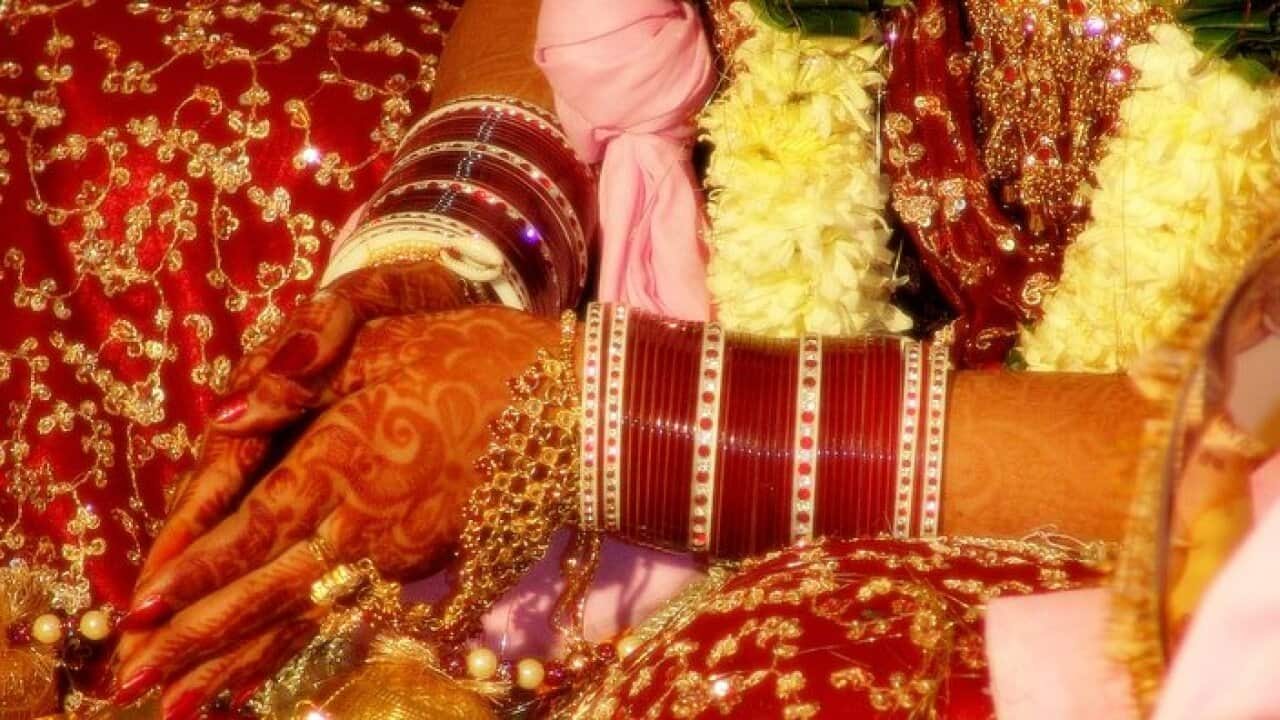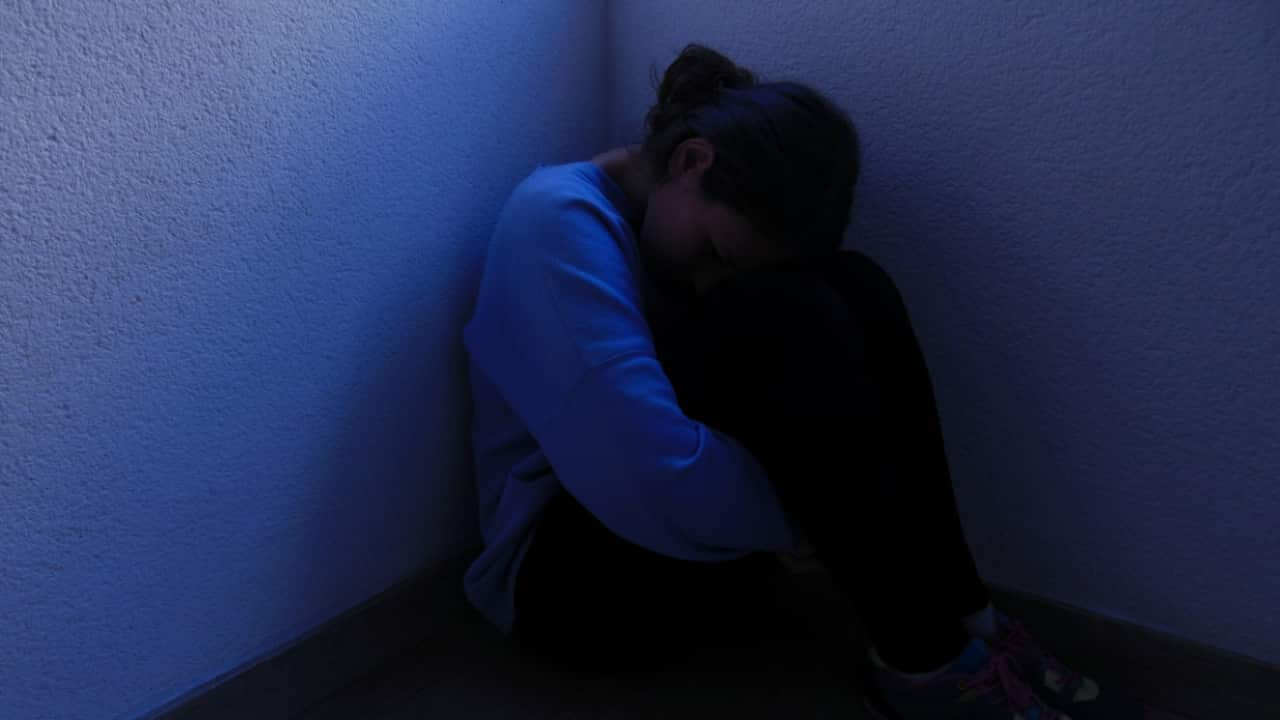In a typical day, Rani Kaur* juggles many different things while caring for her two children - her nursing studies, a job as a security guard, hospital visits for her son’s treatment and occasional visits to her lawyer.
Despite the hardships she is facing, she has never been happier in nearly a decade.
Ms Kaur separated from her husband a little over eight months ago -- ending, what she calls, a very abusive and manipulative relationship of nine years.
“I am currently studying nursing and taking care of my kids. I am an independent woman and it finally feels like that,” she says.
She recently obtained an AVO against her husband - an Indian migrant - after years of what she describes as physical, emotional and financial abuse.
“I was made to believe I had no choice and then I was stuck in this relationship,” she says.
Ms Kaur, now 28, arrived in Australia from a small town in Punjab (India) when she was 18. While searching for somewhere to live in Australia, she met an international student from India who promised to help.
“He said there was a room available for rent in the house where he was renting a room. He was a brotherly figure,” she told SBS Punjabi. “I even cooked for him and he got emotional at that moment, or so I thought.” "Brainwashed”
"Brainwashed”

Source: Getty Images
Ms Kaur says everything changed in just a couple of days.
“On my second night in that house, I woke up to find him on top me and he was raping me. I just froze.”
“By the time it got over, I was bleeding.”
She says she spoke to a friend in India about what had happened.
“She said, ‘you can’t marry anyone else now. You will have to marry him’.
"I didn’t know what to do. What would people say if the word got out!”
Ms Kaur says she didn’t speak to anyone about what happened that night.
“I knew he had raped me and he would never be good to me. But, at that time, I had no option. I was kind of brainwashed.”
She says as a result of her situation, she had become extremely depressed and suicidal.
Marriage
Ms Kaur says despite the promise, he kept dithering and agreed to marry on the condition that she quit her studies and pay his college fees instead.
“I agreed because we were both studying the same subjects and since he had come to Australia before me. So, I paid every dollar that I earned to him.”
“I was thinking perhaps marriage would change him.” She says this continued after their marriage.
She says this continued after their marriage.

Source: AAP
“I had polycystic ovarian syndrome and couldn’t have a baby for two years after marriage. My husband started threatening me saying, ‘either give me a son or I’ll marry someone else’.”
By the time her son was born in 2012, her husband’s parents had arrived from India. Ms Kaur says while the pressure of bearing a son was off, her harassment got worse.
She found an escape in her security guard job where she was working up to 16 hours a day even while she still had stitches from her caesarean delivery.
“Whatever I was earning was going to my husband. But the demands were increasing by the day”.
In 2014 Ms Kaur became pregnant again.
“My husband and his parents wanted me to have a son again. They said, ‘your sister-in-law has three sons’,” she said.
Her scans revealed she was pregnant with a girl. Ms Kaur claims she was forced to travel to India to abort her pregnancy while she was over five months into it. She said the doctor in India who was meant to terminate her pregnancy decided against it because “it was very risky”. Under the Indian law, abortion is legal only up to 20 weeks of pregnancy in specific conditions where there’s a risk of the baby being born with severe impairments or a risk to the pregnant woman.
Under the Indian law, abortion is legal only up to 20 weeks of pregnancy in specific conditions where there’s a risk of the baby being born with severe impairments or a risk to the pregnant woman.

Source: Harsha K R Flickr/ CC BY-SA 2.0
She says her daughter was “rejected” by everyone in the family.
Ms Kaur’s son suffered a stroke after he was allegedly hit by her husband. She says despite signs of a “serious internal injury” her husband and his parents didn’t allow her to get medical help for him.
“When I finally managed to get a doctor to see him, he immediately asked us to take him to hospital. They found a blood clot on his brain.”
She says she was beaten up in front of her children several times.
The Government’s child safety agency concluded that the both of Ms Kaur’s children had suffered “significant emotional harm due to being present and exposed to the incidents perpetrated” by their father, “including domestic family violence and self-harm”.
That’s when she decided she had had enough and contacted the police. Ms Kaur says after the police visited her husband and his parents, they apologised to her for “all that they had done” to her.
“I thought they had learned their lesson and I could give them another chance.
“Just a week later, my father-in-law physically abused me, saying, ‘how dare you call the police’. My husband said if wanted to live with him, I should apologise to his father.”
Childhood abuse
Social worker Jatinder Kaur has been working with victims of domestic violence from diverse backgrounds, including Indians, for a number of years.
She says it often comes down to culture and community pressure how sexual violence victims are treated.
“If you look at how most Indian girls are raised, they are raised to be obedient. They are told at a very young age that they have to make their husbands happy.
“From what I understand of my experience of Indian women that I support, that they are not told about what is a consensual relationship. What are your rights. Your rights to say no if you don’t want to have sexual intercourse with your husband." She says many women in such situations would have no understanding of what could happen if they got married to someone who was abusive.
She says many women in such situations would have no understanding of what could happen if they got married to someone who was abusive.

Abused and neglected children are at a severe disadvantage when they start school, research shows. Source: AAP
While Indian women were the last year seeking help against domestic violence in Australia, Rani Kaur's experience of abuse during her childhood made her particularly vulnerable.
As a child, she suffered abuse at the hands of her stepfather. Jatinder Kaur says women who have suffered abuse during their childhood feel less safe talking about what’s going on with them.
“In her situation, I think she was highly vulnerable.
“She had no safe person to talk to about what was going on, nor was she given any information about her rights that she did not have to marry the person who raped her.”
She says having information about one’s rights is the key to accessing help.
“In her situation, she was highly vulnerable based on her childhood experience. She only sought information from her friend. Had she been told where to go to -- a community legal centre, a police officer, a community support worker -- they would have been able to tell her what her rights were.”
Unshackling herself
Ms Kaur says she decided to leave her husband in September last year as he grew increasingly abusive and violent towards both her and their children. She is now going through a divorce case that will be heard by the court in the coming months.
“I had no support system back then and was made to believe that I had no choice but to fall back on my tormentor. It perpetuated my suffering,” she says.
She has received support from government agencies to settle in her new life and take care of her children.
Since leaving her husband, Ms Kaur has enrolled herself in a nursing course and intends to pursue a career in social work to be able to assist victims like herself.
(*Not her real name)
If you are experiencing domestic violence, you can seek help at 1800 737 732
If you are experiencing stress, call Lifeline at 13 11 14 or Beyond Blue at 1300 22 4636
Read SBS Punjabi's award-winning story on domestic violence in Australia

'The Enemy Within' (English Version)


